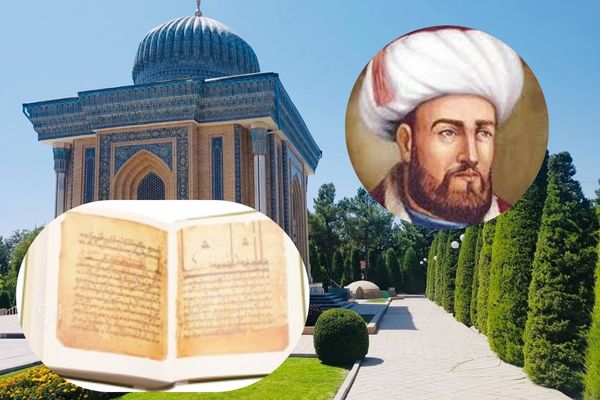Abu Mansur Daghighi Toosi, commonly known as Daghighi, was a Persian poet of the 10th century, born in Tus (in modern-day Iran). He is best known as an early Persian epic poet and as a forerunner to the legendary Ferdowsi, whose Shahnameh (Book of Kings) became the definitive epic of Persian literature. Daghighi’s poetry laid the groundwork for Persian epic storytelling, and his contributions remain highly respected for their early role in revitalizing Persian culture and language after the Arab conquest.
Very little is known about Daghighi’s life, but he is believed to have served at various courts as a poet, including the court of the Samanid dynasty, which was a strong supporter of Persian arts and culture. The Samanids promoted the Persian language, literature, and Zoroastrian traditions, creating a fertile environment for poets like Daghighi, who drew on these ancient themes to craft his verse. Though some suggest Daghighi had Zoroastrian roots, he was likely a Muslim, as he also included Islamic elements in his poetry, illustrating the cultural blending of the time.
Daghighi's most important work is his unfinished epic about the history and mythology of pre-Islamic Persia, particularly the reign of Gushtasp, a legendary king associated with the early days of Zoroastrianism. His poetry explores Persian values of heroism, justice, and honor, themes that later flourished in the Shahnameh. Daghighi’s unique contribution was his portrayal of Iran’s ancient history with a sense of national pride and reverence, capturing the heroic deeds and moral virtues of Iran’s legendary past.
Ferdowsi, the poet who would later complete the Shahnameh, included Daghighi’s verses within his own work as a tribute, specifically Daghighi's account of the rise of Zoroastrianism. This inclusion not only honors Daghighi’s contribution to Persian epic poetry but also reflects the respect Ferdowsi held for Daghighi’s pioneering work. It is said that Daghighi’s untimely death prevented him from completing his epic, but the few hundred lines he wrote influenced Ferdowsi profoundly, setting a foundation for the structure, themes, and spirit of the Shahnameh.
Daghighi's poetry is marked by its simplicity, clarity, and directness. Unlike many poets of his time who favored lyrical and mystical themes, Daghighi focused on epic storytelling with an emphasis on historical and mythological subjects. His work stands as an early example of the Persian literary renaissance that reclaimed Iran’s pre-Islamic heritage, helping to shape Persian national identity.
Although his life was brief, and his body of work is limited, Daghighi's legacy lives on as a pivotal figure in Persian literature. His contributions bridged past and future, linking ancient Persian myths with the emerging Persian literary tradition that would flourish in the centuries to come. His influence is immortalized in the verses of the Shahnameh, ensuring that his role in the revival of Persian epic poetry is remembered.
Sokhanvar information
Published on Nov. 7, 2024, 7:09 p.m. by @hamed
- Name: Abu Mansur Daghighi Toosi
- Persian Name:: نام به فارسی
- Alias: Daghighi
- Comments: 0
- Views: 639
Works
Daghighi's most important work is his unfinished epic about the history and mythology of pre-Islamic Persia, particularly the reign of Gushtasp, a legendary king associated with the early days of Zoroastrianism. His poetry explores Persian values of heroism, justice, and honor, themes that later flourished in the Shahnameh. Daghighi’s unique contribution was his portrayal of Iran’s ancient history with a sense of national pride and reverence, capturing the heroic deeds and moral virtues of Iran’
Books
- No books added yet.

